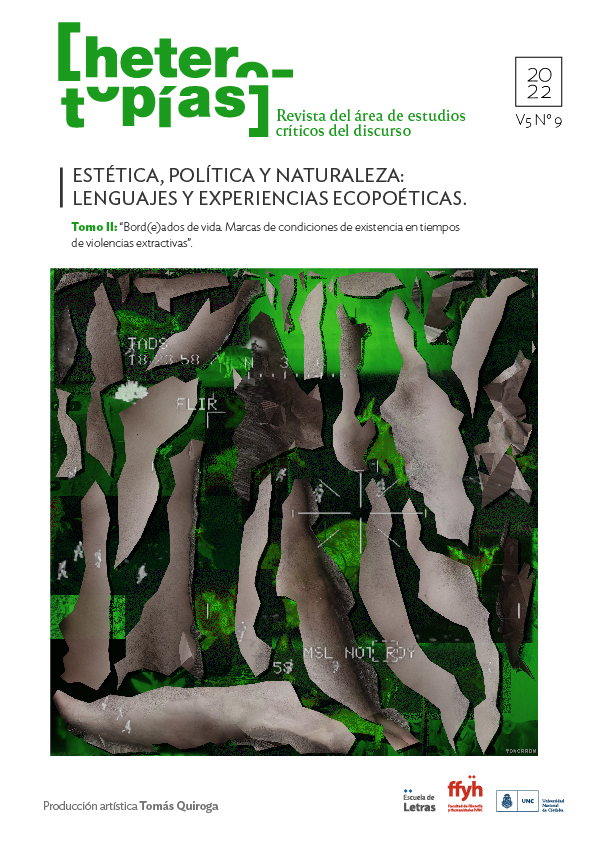Arde Córdoba A collective cry to denounce the ecocide in Córdoba
Main Article Content
Abstract
In a beautiful text about the passenger pigeon Vinciane Despret invites to her readers to think about what names evoke, what names make us sensitive to. In the same way this article offers an alternative, among many possible ones, about what Arde Córdoba suggests and makes feel. We propose a story composed of visual and textual records and some theoretical readings to reflect the power and limits of that experience.
Arde Córdoba is the name of a group, an action, a reality, an experience. Arde Córdoba is the name of an attempt to dispute what we can imagine and do after the devastating fire, not only the way of naming the catastrophe. From july to october 2020, in the midst of the COVID-19 pandemic, a series of forest fires affected more than 300,000 hectares in the province of Córdoba. The native forest burned and the devastation wasn't natural, it was political-economic-financial and had media coverage. In this context a series of artists, researchers, activists and citizens in general agreed to promote a collective cry that would forcefully make visible the ecocide we were suffering.
In front to restrictions of movement and organization of meetings, we composed other forms of intervention in public space. The nets we weaved, and their power, allowed us to do a proyectorazo to make visible the flames in the forests and the pain of the communities. If the provincial State dedicated itself to preparing the ground for real estate, mining and agro-industrial extractivism, from Arde Córdoba we seek to promote another narrative, another way to continuing with the trouble (Haraway, 2019). Nothing was more fertile than a devastated territory, turning the mountain into devastated land, a tabula rasa to install something else. We try to prevent this devastation proposing another map and we shout loudly: ¡Donde hay cenizas, habrá monte! ¡Donde hubo incendios, habrá bosques!
Downloads
Article Details

This work is licensed under a Creative Commons Attribution-NonCommercial-ShareAlike 4.0 International License.
Those authors who have publications with this journal, accept the following terms: Those authors who have publications with this journal, accept the following terms:
a. The authors will keep their copyright and guarantee to the journal the right of first publication of their work, which will be simultaneously subject to the Creative Commons Attribution - Non-Commercial - Share Alike (by-nc-sa) Attribution License; no commercial use of the original work or any derivative works is allowed, the distribution of which must be done with a license equal to the one that regulates the original work.
b. Authors may adopt other non-exclusive license agreements for the distribution of the published version of the work (e.g., deposit it in an institutional telematic archive or publish it in a monographic volume) provided that the initial publication in this journal is indicated.
c. Authors are allowed and recommended to disseminate their work through the Internet (e.g. in institutional telematic archives or on their website) before and during the submission process, which may lead to interesting exchanges and increase the number of citations of the published work. (See The effect of open access).
References
Guzmán Arroyo, A. (2019). Descolonizar la Memoria, Descolonizar los Feminismos. La Paz: Tarpuna Muya.
Haraway, D. (2019). Seguir con el problema. Generar parentesco en el Chthuluceno. Bilbao: Consoni.
